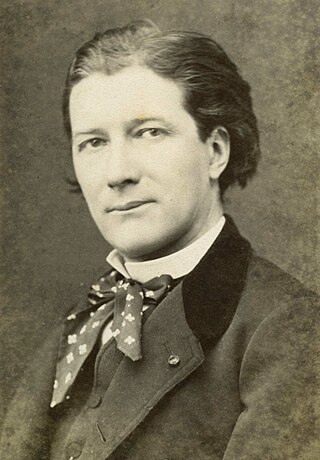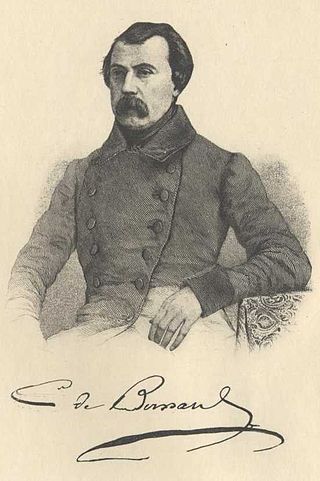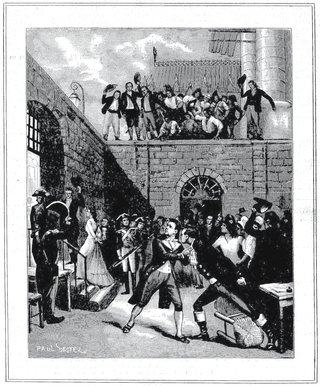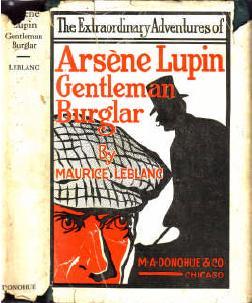
Tosca is an opera in three acts by Giacomo Puccini to an Italian libretto by Luigi Illica and Giuseppe Giacosa. It premiered at the Teatro Costanzi in Rome on 14 January 1900. The work, based on Victorien Sardou's 1887 French-language dramatic play, La Tosca, is a melodramatic piece set in Rome in June 1800, with the Kingdom of Naples's control of Rome threatened by Napoleon's invasion of Italy. It contains depictions of torture, murder, and suicide, as well as some of Puccini's best-known lyrical arias.

La Tosca is a five-act drama by the 19th-century French playwright Victorien Sardou. It was first performed on 24 November 1887 at the Théâtre de la Porte Saint-Martin in Paris, with Sarah Bernhardt in the title role. Despite negative reviews from the Paris critics at the opening night, it became one of Sardou's most successful plays and was toured by Bernhardt throughout the world in the years following its premiere. The play itself had dropped from the standard theatrical repertoire by the mid-1920s, but its operatic adaptation, Giacomo Puccini's Tosca, has achieved enduring popularity. There have been several other adaptations of the play including two for the Japanese theatre and an English burlesque, Tra-La-La Tosca as well as several film versions.

Victorien Sardou was a French dramatist. He is best remembered today for his development, along with Eugène Scribe, of the well-made play. He also wrote several plays that were made into popular 19th-century operas such as La Tosca (1887) on which Giacomo Puccini's opera Tosca (1900) is based, and Fédora (1882) and Madame Sans-Gêne (1893) that provided the subjects for the lyrical dramas Fedora (1898) and Madame Sans-Gêne (1915) by Umberto Giordano. His play Gismonda, from 1894, was also adapted into an opera of the same name by Henry Février.

La favorite is a grand opera in four acts by Gaetano Donizetti to a French-language libretto by Alphonse Royer and Gustave Vaëz, based on the play Le comte de Comminges by Baculard d'Arnaud with additions by Eugène Scribe based on the story of Leonora de Guzman. The opera concerns the romantic struggles of the King of Castile, Alfonso XI, and his mistress, the "favourite" Leonora, against the backdrop of the political wiles of receding Moorish Spain and the life of the Catholic Church. It premiered on 2 December 1840 at the Académie Royale de Musique in Paris.

Fedora is an opera in three acts by Umberto Giordano to an Italian libretto by Arturo Colautti, based on the 1882 play Fédora by Victorien Sardou. Along with Andrea Chénier and Siberia, it is one of the most notable works of Giordano.

Pierre-Marie-Charles de Bernard du Grail de la Villette, better known simply as Charles de Bernard, was a French writer.

Don't Lose Your Head is a 1967 British swashbuckling comedy film, the 13th in the series of 31 Carry On films (1958–1992). It features regular team members Sid James, Kenneth Williams, Jim Dale, Charles Hawtrey, and Joan Sims. Set in France and England in 1789 during the French Revolution, it is a parody of Baroness Orczy's The Scarlet Pimpernel.

The Théâtre de la Ville is one of the two theatres built in the 19th century by Baron Haussmann at Place du Châtelet, Paris, the other being the Théâtre du Châtelet. It is located at 2, place du Châtelet in the 4th arrondissement.

The Théâtre du Gymnase or Théâtre du Gymnase Marie Bell, is a theatre in Paris, at 38 Boulevard Bonne-Nouvelle in the 10th arrondissement.

Le premier jour de bonheur is an opera or opéra comique in three acts by Daniel Auber. The French libretto by Adolphe d'Ennery and Eugène Cormon is based on Joseph François Souque's Le chevalier de Canolle. The work's premiere was staged by the Opéra-Comique at the Salle Favart theatre on 15 February 1868.
Gismonda is a Greek-set melodrama in four acts by Victorien Sardou that premiered on October 31, 1894 at the Théâtre de la Renaissance. In 1918, the play was adapted for the now lost film Love's Conquest. In 1918/1919, it was adapted into the opera Gismonda by Henry Février.

Thermidor is a four-act dramatic play by the 19th-century French playwright Victorien Sardou.

Fédora is a play by the French author Victorien Sardou. It opened at the Théâtre du Vaudeville in Paris on 11 December 1882, and ran for 135 performances. The first production starred Sarah Bernhardt. She wore a soft felt hat in that role which was soon a popular fashion for women; the hat became known as a fedora.

Arsène Lupin, Gentleman Burglar is the first collection of stories by Maurice Leblanc recounting the adventures of Arsène Lupin, released on 10 June 1907. It contains the first nine stories depicting the character, first published in the French magazine Je sais tout, the first one being on 15 July 1905. The seventh features English detective Sherlock Holmes, changed in subsequent publications to "Herlock Sholmes" after protests from Arthur Conan Doyle's lawyers, as seen in the second collection Arsène Lupin versus Herlock Sholmes.

Les pêcheurs de perles is an opera in three acts by the French composer Georges Bizet, to a libretto by Eugène Cormon and Michel Carré. It was premiered on 30 September 1863 at the Théâtre Lyrique in Paris, and was given 18 performances in its initial run. Set in ancient times on the island of Ceylon, the opera tells the story of how two men's vow of eternal friendship is threatened by their love for the same woman, whose own dilemma is the conflict between secular love and her sacred oath as a priestess. The friendship duet "Au fond du temple saint", generally known as "The Pearl Fishers Duet", is one of the best-known in Western opera.

Gloria is a tragic opera in three acts by Francesco Cilea with an Italian libretto by Arturo Colautti. A variation on the Romeo and Juliet story and set in 14th century Siena, the libretto is based on Victorien Sardou's 1874 play La Haine (Hatred). The opera premiered on 15 April 1907 at La Scala conducted by Arturo Toscanini with Solomiya Krushelnytska in the title role. Gloria was a failure at its premiere when it was withdrawn after two performances and fared little better in the 1932 revised version, although there have been two late 20th century revivals. It proved to be Cilea's last staged opera. In the 43 years following the premiere of Gloria he worked on two or three further operas which were never performed and continued to compose chamber and orchestral music.

Jean-Nicolas-Gustave Van Nieuwen-Huysen was a Belgian playwright, librettist, translator of opera libretti., and opera director. He wrote many stage plays and opera libretti in collaboration with Alphonse Royer]; including the libretti to Gaetano Donizetti's La favorite (1843) and Giuseppe Verdi's Jérusalem (1847). Vaëz and Royer also translated several Italian-language operas by other writers into French. Vaëz also collaborated on opera libretti with the writers Eugène Scribe and Victorien Sardou.
La Haine(Hatred) is a drama in five acts and eight tableaux by Victorien Sardou, premiered at the Théâtre de la Gaîté in Paris on 3 December 1874. Jacques Offenbach, director of the theatre, composed extensive incidental music for chorus and orchestra to accompany the play.

Madame Sans-Gêne is a historical comedy-drama by Victorien Sardou and Émile Moreau, concerning incidents in the life of Catherine Hübscher, an outspoken 18th-century laundress who became the Duchess of Danzig. The play is described by its authors as "three acts with a prologue".
The Château du Verduron also known as the Château des Sphinx owes its original fame to Louis Blouin, who held the prominent position of head valet in the court of Louis XIV of France from 1704 until 1715. Other distinguished owners of the property included Victorien Sardou, the French dramatist and one-time mayor of the Parisian suburb of Marly-le-Roi.















